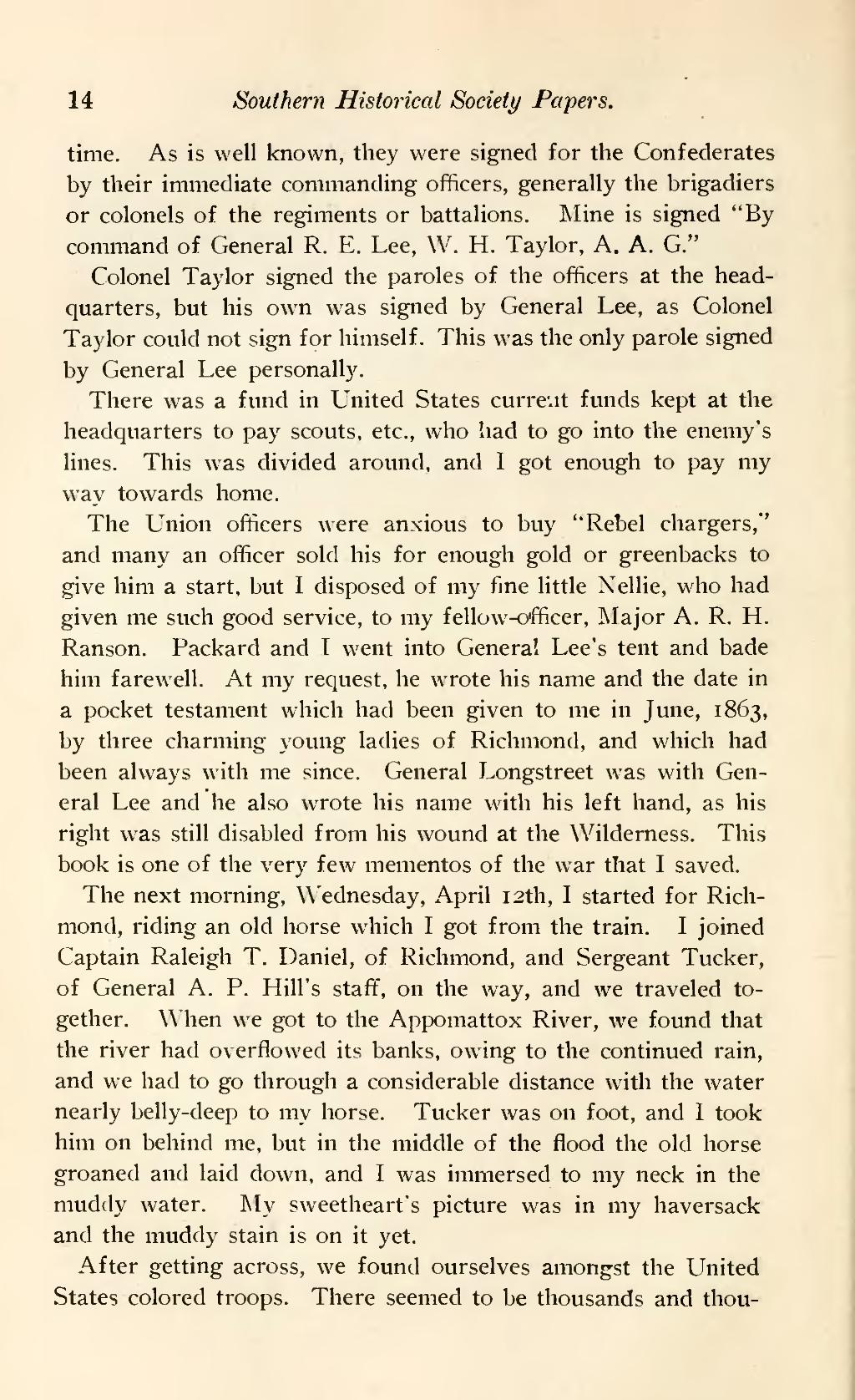time. As is well known, they were signed for the Confederates by their immediate commanding officers, generally the brigadiers or colonels of the regiments or battalions. Mine is signed "By command of General R. E. Lee, W. H. Taylor, A. A. G."
Colonel Taylor signed the paroles of the officers at the headquarters, but his own was signed by General Lee, as Colonel Taylor could not sign for himself. This was the only parole signed by General Lee personally.
There was a fund in United States current funds kept at the headquarters to pay scouts, etc., who had to go into the enemy's lines. This was divided around, and I got enough to pay my way towards home.
The Union officers were anxious to buy "Rebel chargers, and many an officer sold his for enough gold or greenbacks to give him a start, but I disposed of my fine little Nellie, who had given me such good service, to my fellow-officer, Major A. R. H. Ranson. Packard and I went into General Lee's tent and bade him farewell. At my request, he wrote his name and the date in a pocket testament which had been given to me in June, 1863, by three charming young ladies of Richmond, and which had been always with me since. General Longstreet was with General Lee and he also wrote his name with his left hand, as his right was still disabled from his wound at the Wilderness. This book is one of the very few mementos of the war that I saved.
The next morning, Wednesday, April 12th, I started for Richmond, riding an old horse which I got from the train. I joined Captain Raleigh T. Daniel, of Richmond, and Sergeant Tucker, of General A. P. Hill's staff, on the way, and we traveled together. When we got to the Appomattox River, we found that the river had overflowed its banks, owing to the continued rain, and we had to go through a considerable distance with the water nearly belly-deep to my horse. Tucker was on foot, and I took him on behind me, but in the middle of the flood the old horse groaned and laid down, and I was immersed to my neck in the muddy water. My sweetheart's picture was in my haversack and the muddy stain is on it yet.
After getting across, we found ourselves amongst the United States colored troops. There seemed to be thousands and thou-
